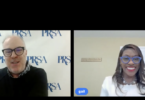Managing reputational and political risk has long been the task of corporate communication professionals, but the task has gotten more complex as commerce has become increasingly global. With individual governments proving increasingly unable or unwilling to regulate global commerce, private politics—actions by private interests such as activists and NGOs that seek to rein in business practices deemed outside the public interest—has emerged as a powerful force.
The Rana Plaza factory collapse, which killed more than 1,100 in Bangladesh, offers a powerful example of the impact of private politics. In the aftermath, clothing retailers that sourced goods from this manufacturer faced heightened pressure from activists and the public to claim responsibility—even though they had no direct control over its operations. Since the disaster, many retailers have taken concrete action to prevent future incidents and impose more stringent standards on suppliers. All of these responses occurred due to calls for private regulation, with little input from government.
In an era of globalization, PR executives should be aware of five ways that private politics is changing the business environment.
- Private politics often outpaces government regulation. In situations where traditional regulatory approaches are absent or ineffective, private politics increasingly plays an important role in establishing de facto standards. In the United States, no major environmental statutes have been enacted since the Clean Air Act amendments in 1990, but during this time corporations have voluntarily agreed to a range of more stringent environmental targets.
- Reputational risk transcends the boundary of companies. Executives at U.S.-based companies may feel insulated from events in foreign countries, but greater visibility into global supply chains means that companies are effectively responsible for actors beyond their control. After consumers brought intense pressure on Apple because of complaints leveled at Foxconn, its main manufacturing contractor, the two companies agreed to improve labor conditions significantly at Chinese factories. Apple faced a reputational crisis because of the actions of its contractor, not its own operations.
- Large companies are establishing standards unilaterally. To get out front of public sentiment, some leading companies have imposed new guidelines on their suppliers. McDonald’s, for example, has changed its conduct in areas such as safety, environmental stewardship, labor conditions at suppliers, and animal welfare… These measures have repercussions for the entire industry; they directly affect suppliers and may set standards for competitors..
- NGOs and activists are increasingly in the regulation business, but choose targets strategically. Corporate campaigns, the quintessential instrument of private politics, are attempts to regulate industry behavior through a combination of boycotts, divestment campaigns, protests, and promised rewards. Activists choose their targets for maximum impact, often focusing on famous consumer brands (such as Nike or Starbucks) rather than the worst offender or the local manufacturer that has operating responsibility.
- Public expectations of corporate behavior have never been higher. Thanks to the dramatic rise in media coverage and stakeholder expectations, companies must demonstrate their positive social impact or risk public outcry. Since NGOs and activists have become adept at using social media to share information and rally support, incidents that were once easily contained can quickly become a top global news story and inflict serious reputational damage.
As the role of private politics continues to grow, companies need to understand that the scrutiny of their business practices is growing. This requires a detailed understanding of potentially problematic issues and stakeholder landscapes. Simply ignoring this phenomenon will not make it go away.
The upcoming Kellogg-Aspen Business and Society Leadership Summit on February 27-28 will explore the topic of global governance gaps in depth. The summit will feature corporate and NGO leaders such as Jose Luis Prado, President of Quaker Foods North America, PepsiCo; Brian Kelley, CEO of Green Mountain Coffee Roasters; Roxanne Decyk, Former head of Global Government Relations at Royal Dutch Shell; and Phil Radford, Executive Director of Greenpeace USA.







[…] recently wrote a post for the Public Relations Society of America (PRSA) blog which touched upon the focus of the upcoming Kellogg-Aspen Business and Society Leadership Summit, […]